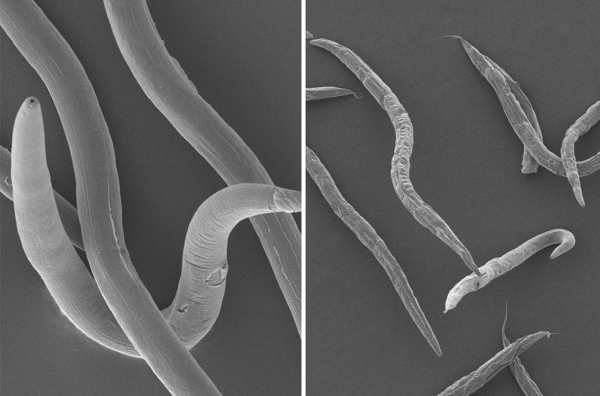Researchers have long known that many animals live longer in colder climates than in warmer climates. New research in C. elegans nematode worms suggests that this phenomenon is tied to a protein found in the nervous system that controls the expression of collagens, the primary building block of skin, bone and connective tissue in many animals.
Since the C. elegans’ protein is similar to nervous system receptor proteins found in other species including humans, the discovery potentially brings scientists closer to finding ways to harness collagen expression to slow down human aging and increase lifespan in the midst of global warming. Led by scientists at Washington State University, the study was published in the journal Aging Cell.
“Based on animal studies, scientists anticipate that human lifespan will go down in the future as climate change drives up the ambient temperature,” said senior author Yiyong (Ben) Liu, an assistant professor in the WSU Elson S. Floyd College of Medicine and director of the university’s Genomics Service Center. “We have found that warm temperatures leading to short lifespan is not a passive, thermodynamic process as previously thought, but a regulated process controlled by the nervous system. Our findings mean that down the road, it may be possible to intervene in that process to extend human lifespan as temperatures rise.”
Read more at Washington State University
Image: Scanning electron microscopy images of C. elegans worms show young worms with smooth cuticles (skin) (left) and old worms that show more wrinkles (right). (Credit: Washington State University)


